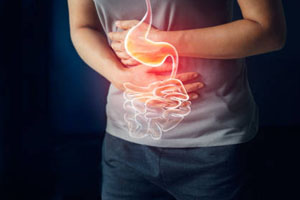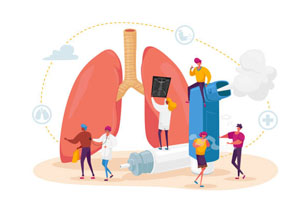Uncover the world of the Keto Diet and its profound impact on health Learn about ketosis, weight loss, blood sugar control, and more Discover tips, meal plans, and decide if this low-carb, high-fat diet is the right choice for you
What Is the Keto Diet and How Does It Affect Health? The ketogenic diet, often referred to as the keto diet, is a low-carbohydrate, high-fat dietary approach designed to shift the body's metabolism into a state of ketosis. In ketosis, the body primarily utilizes fat for energy, which can lead to weight loss and various health effects. Understanding the basics of the keto diet and its potential impact on health is essential for those considering this dietary regimen. Whether you're new to the concept or looking to explore its broader implications, this article delves into the intricacies of the keto diet and its multifaceted relationship with health.

Understanding the Keto Diet
What Is the Keto Diet?
The ketogenic (keto) diet is a low-carbohydrate, high-fat diet that has gained popularity for its potential health benefits and effectiveness in weight management. It is characterized by a significant reduction in carbohydrate intake, typically to less than 50 grams per day, with a focus on consuming fats and moderate amounts of protein.
The primary goal of the keto diet is to induce a metabolic state known as ketosis, where the body shifts from relying on carbohydrates for energy to burning fat for fuel. During ketosis, the liver produces molecules called ketones, which are used as an alternative energy source.
Key features of the keto diet include:
- High Fat Intake: Approximately 70-75% of daily caloric intake comes from healthy fats like avocados, nuts, seeds, and oils.
- Low Carbohydrate Consumption: Carbohydrates are limited to a small portion of daily calories, mainly from non-starchy vegetables.
- Moderate Protein Intake: Protein consumption is kept at a moderate level, around 20-25% of daily calories, to prevent the conversion of excess protein into glucose.
The keto diet has evolved into several variations, including the standard ketogenic diet (SKD), targeted ketogenic diet (TKD), cyclical ketogenic diet (CKD), and high-protein ketogenic diet. Each version may have specific goals or applications.
It's important to note that while the keto diet has shown potential benefits, it may not be suitable for everyone, and consulting with a healthcare professional before starting this dietary regimen is advisable.
Understanding the fundamental principles of the keto diet is essential before delving into its potential effects on health and well-being.
How Does the Keto Diet Work?
The keto diet works by fundamentally changing the way the body produces and utilizes energy. It leverages a natural metabolic process called ketosis to achieve its effects.
1. Reducing Carbohydrate Intake: The first step of the keto diet involves a significant reduction in carbohydrate consumption. Carbohydrates are the body's primary source of energy. When carbohydrate intake is limited to less than 50 grams per day, the body must find an alternative energy source.
2. Inducing Ketosis: With reduced carbohydrate availability, the liver begins to produce molecules called ketones. Ketones serve as an alternative fuel source, especially for the brain, which typically relies on glucose. The presence of ketones in the bloodstream is a sign that the body has entered a state of ketosis.
3. Burning Fat for Energy: During ketosis, the body shifts its primary energy source from carbohydrates to stored fat. Fats are broken down into fatty acids and converted into ketones, which are used by cells for energy. This process leads to the efficient burning of stored body fat, making it a popular choice for weight loss.
4. Appetite and Hunger Control: The keto diet may help control appetite and reduce hunger. Ketones have been shown to affect hormones that regulate satiety, potentially leading to reduced calorie intake.
5. Stabilizing Blood Sugar Levels: By minimizing carbohydrate intake, the keto diet can help stabilize blood sugar levels. This is particularly beneficial for individuals with type 2 diabetes or those at risk of developing the condition.
6. Enhanced Fat Oxidation: With ketosis, the body becomes more efficient at oxidizing fat for energy. This can result in increased fat loss and improved body composition.
The ketogenic diet's effectiveness in promoting weight loss and metabolic changes makes it a subject of ongoing research and a popular choice for those seeking an alternative approach to nutrition. However, it's essential to follow the diet carefully and monitor its effects, as it may not be suitable for everyone.
Understanding how the keto diet harnesses the metabolic process of ketosis is key to comprehending its potential health impacts.
Effects of the Keto Diet on Health
Keto Diet and Weight Loss
The keto diet is widely recognized for its potential to promote weight loss by altering the body's metabolism and energy utilization. Here, we delve into how the diet can lead to effective weight management:
1. Fat as the Primary Energy Source: The key principle of the keto diet is to shift the body's primary energy source from carbohydrates to fats. With minimal carbohydrate intake, the body enters a state of ketosis, where it efficiently burns stored fat for energy. This process aids in weight loss by reducing fat reserves.
2. Appetite Suppression: Many individuals on the keto diet experience reduced appetite and feelings of fullness. Ketones, produced during ketosis, may affect hunger-regulating hormones, leading to decreased calorie intake. This appetite control can be particularly beneficial for those looking to manage their weight.
3. Improved Fat Oxidation: Ketosis enhances the body's ability to oxidize fat. As a result, individuals on the keto diet may experience increased fat loss, leading to improvements in body composition. This can be especially appealing for those seeking to shed excess body fat.
4. Stabilized Blood Sugar Levels: The keto diet can help stabilize blood sugar levels, preventing the spikes and crashes associated with high-carbohydrate diets. Steady blood sugar levels reduce cravings and overeating, facilitating weight management.
5. Loss of Water Weight: In the initial stages of the keto diet, there is often a rapid loss of water weight. This is due to reduced carbohydrate intake, which leads to lower insulin levels and the excretion of stored water. While this is not fat loss, it can contribute to initial weight reduction.
6. Preservation of Lean Body Mass: Unlike some extreme diets, the keto diet is designed to preserve lean body mass while targeting fat loss. This is essential for maintaining overall health and metabolism during a weight loss journey.
It's important to note that individual responses to the keto diet may vary, and not everyone will experience the same degree of weight loss. Additionally, the diet's long-term effects on weight management and overall health are subjects of ongoing research.
The potential for weight loss is one of the primary reasons individuals are drawn to the keto diet, but it should be undertaken with an understanding of its mechanisms and potential health implications.
Impact on Blood Sugar and Insulin Levels
The keto diet has notable effects on blood sugar and insulin levels, which can be of significance, particularly for individuals with diabetes or those at risk of developing the condition. Here's how the diet influences these factors:
1. Stabilizing Blood Sugar Levels: By significantly reducing carbohydrate intake, the keto diet helps stabilize blood sugar levels. When carbohydrates are limited, there are fewer glucose spikes and crashes, making it an attractive option for individuals with diabetes who need to manage their blood sugar.
2. Lower Insulin Production: With reduced carbohydrate consumption, the body doesn't need to release as much insulin to manage blood sugar. This lower insulin production can be beneficial for individuals with insulin resistance or those trying to reduce their risk of developing diabetes.
3. Ketones as an Alternative Fuel: In ketosis, the body relies on ketones as an alternative source of energy, reducing the demand for glucose. This is advantageous for people with diabetes because it can help prevent blood sugar spikes and lower overall glucose levels.
4. Potential Reduction in Medication: Some individuals with type 2 diabetes may experience improvements in blood sugar control on the keto diet. This could lead to a decreased need for diabetes medication, but any medication adjustments should be made under the guidance of a healthcare professional.
5. Caution for Hypoglycemia: While the keto diet can help stabilize blood sugar, it may also increase the risk of hypoglycemia (low blood sugar) in some individuals. Those taking diabetes medications should carefully monitor their blood sugar levels and work with their healthcare provider to adjust medication as needed.
It's important to recognize that the effects of the keto diet on blood sugar and insulin levels can vary from person to person. Therefore, individuals with diabetes or those considering the diet should consult a healthcare professional to determine if it is an appropriate choice and to receive guidance on managing their condition while following the diet.
The keto diet's potential to influence blood sugar and insulin levels underscores the need for informed decision-making when considering this dietary approach.
Cholesterol and Heart Health
The relationship between the keto diet and cholesterol levels, as well as its impact on heart health, is a topic of considerable interest and debate. Let's explore the various aspects of this connection:
1. Effects on Cholesterol Profile: The keto diet often leads to changes in cholesterol levels, including an increase in high-density lipoprotein (HDL) cholesterol and a potential increase in low-density lipoprotein (LDL) cholesterol. While elevated HDL cholesterol is generally considered beneficial for heart health, an increase in LDL cholesterol can raise concerns.
2. Pattern B vs. Pattern A: Researchers have identified two subtypes of LDL cholesterol: Pattern A and Pattern B. Pattern A LDL particles are considered less harmful, while Pattern B particles are associated with a higher risk of heart disease. Some studies suggest that the keto diet may primarily increase Pattern A, which could be less detrimental.
3. Inflammation and Heart Health: Inflammation is a key contributor to heart disease. Some proponents of the keto diet argue that it can reduce inflammation markers, potentially benefiting heart health. However, more research is needed to establish a clear connection between the diet and inflammation reduction.
4. Individual Variability: It's essential to recognize that individuals may respond differently to the keto diet concerning cholesterol and heart health. While some people experience favorable changes, others may see an adverse effect. Regular monitoring of cholesterol levels is recommended, especially for those with existing heart conditions.
5. Consultation with a Healthcare Provider: If you have concerns about how the keto diet may impact your cholesterol and heart health, it's crucial to consult with a healthcare provider. They can assess your specific situation and provide guidance on diet choices and potential interventions to protect heart health.
Overall, the relationship between the keto diet, cholesterol, and heart health is complex. While it may offer some advantages, it also carries potential risks, especially for individuals with existing heart conditions. Decisions about the diet's suitability should be made in consultation with healthcare professionals.
Understanding the nuances of how the keto diet can affect cholesterol and heart health is essential for those considering this dietary approach.
Mental and Cognitive Effects
Beyond its physical impact, the keto diet is known to influence mental and cognitive aspects. Understanding these effects is crucial for a well-rounded perspective on the diet's potential impacts:
1. Improved Mental Clarity: Many individuals on the keto diet report improved mental clarity and focus. This is often attributed to the brain's utilization of ketones as an efficient energy source. The absence of glucose fluctuations can lead to more stable and sustained mental performance.
2. Potential for Seizure Control: The keto diet originated as a treatment for epilepsy, and it remains a therapeutic option for those with drug-resistant epilepsy. It is believed to help control seizures, although it is typically supervised by healthcare professionals in a clinical setting.
3. Ketones and Neuroprotection: Ketones have been studied for their potential neuroprotective properties. Some research suggests that they may protect brain cells from oxidative stress and inflammation, which are associated with neurodegenerative diseases like Alzheimer's and Parkinson's.
4. Initial Challenges: Some individuals may experience what is commonly known as the "keto flu" when first adopting the diet. This period can involve symptoms such as brain fog, fatigue, and irritability as the body adapts to ketosis. These challenges typically subside as the body adjusts to the diet.
5. Individual Variability: The mental and cognitive effects of the keto diet can vary widely among individuals. Some people may thrive with improved focus and mental clarity, while others may not experience significant changes. Individual responses to the diet should be taken into account.
6. Consideration for Long-Term Mental Health: When considering the keto diet, it's important to think about its long-term implications for mental health. While some potential benefits are recognized, the diet may not be suitable for everyone, and its long-term effects on cognition and mood require further research.
The keto diet's influence on mental and cognitive aspects is an area of ongoing study, and the experiences of individuals can be highly individualized. Careful consideration of these effects is vital when exploring the diet's potential benefits.
Understanding how the keto diet can impact mental clarity, cognitive function, and overall brain health is essential for those considering this dietary approach.
Health Considerations and Safety
Who Should Avoid the Keto Diet?
While the keto diet has gained popularity for its potential benefits, it may not be suitable for everyone. It's important to identify specific groups of individuals who should consider avoiding or approaching the diet with caution:
1. Individuals with Pancreatic Issues: People with pancreatic conditions, such as chronic pancreatitis, may have difficulty producing adequate digestive enzymes. This can impede the breakdown of fats on the keto diet and lead to digestive problems. Consultation with a healthcare provider is advisable in such cases.
2. Those with Gallbladder Problems: The keto diet can be high in dietary fats, which may place additional stress on the gallbladder. Individuals with a history of gallbladder issues or gallbladder removal should be cautious and consider modified versions of the diet that include more easily digestible fats.
3. Pregnant or Breastfeeding Women: Pregnancy and lactation require specific nutritional needs, and the keto diet's restrictive nature may not provide all the necessary nutrients. It is generally not recommended for pregnant or breastfeeding women without careful medical supervision.
4. Individuals with Eating Disorders: The strict nature of the keto diet can potentially exacerbate eating disorders or disordered eating behaviors. Those with a history of eating disorders should approach the diet with caution and under the guidance of mental health and nutrition professionals.
5. People with Liver or Kidney Disease: The keto diet places an additional load on the liver and kidneys due to the metabolism of increased protein and the breakdown of fats. Those with pre-existing liver or kidney conditions should avoid the diet or consult a healthcare provider for personalized guidance.
6. Children and Adolescents: While the keto diet has therapeutic applications for epilepsy in children, it may not be suitable for healthy children and adolescents. Growth and development require a balanced intake of nutrients, and the keto diet's restriction may interfere with these processes.
7. Individuals with Cardiovascular Issues: For individuals with certain heart conditions or risk factors, the high-fat nature of the keto diet may raise concerns. Prior to adopting the diet, consultation with a cardiologist or healthcare provider is recommended to evaluate its suitability.
8. Those Unwilling to Commit: The keto diet requires a significant commitment to dietary changes. Those who are unwilling or unable to make the necessary adjustments, adhere to the dietary restrictions, and monitor their health throughout the process may not find success with the diet.
Individuals in these categories should exercise caution or consider alternatives. Additionally, it is advisable for anyone considering the keto diet to consult with a healthcare provider, especially if they have pre-existing medical conditions or concerns about its suitability.
Recognizing who should avoid the keto diet and when to seek medical guidance is essential for responsible dietary choices.
Common Side Effects and How to Manage Them
As with any dietary change, the keto diet may lead to side effects, particularly during the initial adjustment phase. Understanding these common side effects and how to manage them is essential for a successful keto experience:
1. Keto Flu: Many individuals experience the "keto flu" when they first adopt the diet. Symptoms may include fatigue, headache, dizziness, and irritability. This flu-like state is usually temporary and can be managed by staying hydrated, replenishing electrolytes, and gradually reducing carbohydrate intake.
2. Digestive Issues: Changes in dietary fiber and fat intake can cause digestive discomfort, including constipation or diarrhea. These issues can often be alleviated by increasing fiber intake through low-carb vegetables and ensuring adequate hydration.
3. Dehydration: The keto diet has a diuretic effect, causing the body to excrete more water and electrolytes. This can lead to dehydration. To prevent dehydration, it's essential to drink plenty of water and consider electrolyte supplements or foods rich in potassium, magnesium, and sodium.
4. Increased Cholesterol Levels: Some individuals may experience elevated LDL cholesterol levels while on the keto diet. To manage this, focus on consuming healthier fats, such as those from avocados and fatty fish, and monitor cholesterol levels regularly with a healthcare provider.
5. Muscle Cramps: Electrolyte imbalances can result in muscle cramps. Adequate hydration and consumption of foods rich in electrolytes can help prevent or alleviate muscle cramps on the keto diet.
6. Potential Hair Loss: Some people report hair loss when first starting the keto diet. This may be due to nutrient deficiencies. It's essential to ensure that the diet includes a variety of nutrient-dense foods to prevent potential hair-related issues.
7. Insomnia and Sleep Issues: Some individuals may experience sleep disturbances, such as insomnia, when adapting to the keto diet. This can improve over time as the body adjusts, but maintaining a regular sleep schedule and relaxation techniques may help manage these issues.
8. Emotional Changes: The keto diet can affect mood and emotions during the initial phase. Some people may experience irritability or mood swings. Practicing stress-reduction techniques, such as meditation or yoga, can be beneficial for emotional well-being.
9. Menstrual Changes: Some women may notice changes in their menstrual cycle while on the keto diet. This is often temporary and may be related to hormonal adjustments. If concerns arise, consulting a healthcare provider is advisable.
It's important to remember that while these side effects can occur, they are not experienced by everyone, and they are typically temporary. The key to managing these effects is staying informed, monitoring your health, and adjusting your approach as needed.
Recognizing common side effects and how to manage them is crucial for a positive keto diet experience.
Long-Term Health Implications
While the keto diet offers short-term benefits, it's essential to consider its potential long-term effects on health. Understanding the broader implications is crucial for responsible and informed dietary choices:
1. Nutrient Deficiencies: The keto diet's restriction of certain food groups can lead to nutrient deficiencies over time. Key nutrients like fiber, vitamins, and minerals may be lacking. To mitigate this risk, focus on nutrient-dense foods, consider supplements, and consult a healthcare provider for guidance.
2. Bone Health: Some research suggests that the keto diet may affect bone health. Reduced calcium intake and increased acidity in the body could lead to decreased bone density. Ensuring an adequate intake of calcium and vitamin D is vital for long-term bone health.
3. Kidney Function: The keto diet's higher protein intake may strain the kidneys over time, potentially leading to kidney issues. Regular monitoring of kidney function and adequate hydration are essential for long-term kidney health.
4. Gastrointestinal Health: The keto diet can affect gut health, particularly due to the lower intake of dietary fiber. Long-term changes in gut microbiota may impact digestive health. Consider incorporating fiber-rich low-carb vegetables and fermented foods to support gut health.
5. Social and Psychological Impact: The strict nature of the keto diet may have social and psychological implications over time. It can affect social interactions and lead to stress related to dietary restrictions. Being mindful of these aspects and seeking support when needed is important for overall well-being.
6. Sustainability: Consider the sustainability of the keto diet for your lifestyle and long-term goals. Some people may find it challenging to maintain the diet over an extended period. Exploring flexible or modified approaches may be a more sustainable choice for some individuals.
7. Personalized Approaches: Recognize that the long-term health implications of the keto diet can vary greatly among individuals. Personal factors, such as age, genetics, and existing health conditions, play a significant role in determining the diet's suitability. Consulting with healthcare professionals for personalized guidance is advisable.
While the keto diet may offer short-term advantages, its long-term health implications should be carefully considered. Balancing the potential benefits with the potential risks is essential for making informed dietary choices.
Understanding the broader health implications of the keto diet is critical for responsible and sustainable dietary decisions.
FAQs about the Keto Diet
Q1: What is the primary goal of the keto diet?
A1: The primary goal of the keto diet is to shift the body into a state of ketosis, where it primarily uses fat for energy instead of carbohydrates. This metabolic state is believed to promote fat burning and weight loss.
Q2: Is the keto diet suitable for long-term use?
A2: The suitability of the keto diet for long-term use varies from person to person. While it offers short-term benefits, including weight loss and improved metabolic markers, its long-term effects on health require careful consideration. Personal factors, lifestyle, and health goals should guide the decision to continue or modify the diet over time.
Q3: Can I follow the keto diet as a vegetarian or vegan?
A3: Yes, it is possible to follow a vegetarian or vegan keto diet. While the diet typically includes animal products, plant-based alternatives like tofu, tempeh, nuts, and seeds can be incorporated. Careful planning and consultation with a nutritionist may be necessary to ensure you get all the required nutrients while maintaining ketosis.
Q4: What are the potential side effects of the keto diet, and how can they be managed?
A4: Common side effects of the keto diet include the "keto flu," digestive issues, dehydration, increased cholesterol levels, muscle cramps, hair loss, sleep disturbances, and emotional changes. These can often be managed by staying hydrated, adjusting electrolyte intake, and maintaining a well-balanced diet. Adequate nutrient intake is essential to prevent hair loss. If significant issues persist, consultation with a healthcare provider is advisable.
Q5: Who should avoid the keto diet, and why?
A5: The keto diet may not be suitable for individuals with pancreatic issues, gallbladder problems, pregnant or breastfeeding women, a history of eating disorders, liver or kidney disease, children and adolescents, those with cardiovascular issues, and individuals unwilling to commit to its strict requirements. Consulting with a healthcare provider is essential for those with medical conditions or concerns about the diet's suitability.








